When we are struggling with a substance abuse issue, it can be easy to think about all the reasons why going into an inpatient treatment center just isn’t going to be the right solution.
“I can’t leave my family to fend for themselves.”
“It will be too embarrassing when the neighbors and my co-workers find out.”
“I’ll wait until after the holidays/after I get that raise/after my mom isn’t sick anymore.”
“I can’t afford it right now.”
And maybe the best excuse of all?
“I don’t need an addiction treatment center. I’ve got this under control.”
Key Takeaways
- Drug rehab in an inpatient treatment center can be an excellent solution for someone who is struggling with a substance use disorder, but only if the person seeking treatment is ready to commit.
- There are many ways to determine whether or not you think that an inpatient treatment center is the right solution for you.
- Even once you decide to enroll in an inpatient treatment center, you’ll need to know the right questions to ask to make sure that the mental health services, medical services, insurance options, and length of stay are all going to be best for you and your particular situation.
Making the decision to get help for a substance abuse issue can be one of the most terrifying and intimidating decisions we may have to face.
It can also be one of the bravest decisions you’ll ever make.
If you have found every reason under the sun to not make the phone call to get yourself help for your alcohol or drug abuse, you are not alone.
But let’s see what we can do to make you decide otherwise.
What is Inpatient Addiction Treatment and How Do I Know If I Need It?
Inpatient addiction treatment, also known as residential rehab, is a comprehensive form of treatment for individuals struggling with substance abuse and addiction.
It almost always involves residing in a specialized facility for a specified period to receive intensive therapy, mental health services administration support, and medical care in a structured and monitored environment.
Inpatient treatment is residential treatment that provides a higher level of care and support compared to outpatient rehab, making it suitable for individuals with severe addiction, co-occurring mental health disorders, or those who require a more immersive and focused approach to their drug and/or alcohol rehab.
Determining if you need inpatient drug and/or alcohol rehab treatment can be a crucial step in addressing your substance abuse and beginning the journey to recovery. While each person’s situation is unique, there are several indicators that may suggest the need for inpatient treatment:
Severe Addiction: If you have a long-standing and severe addiction to drugs or alcohol, inpatient treatment can offer the intensity and duration necessary to break free from the cycle of addiction. It provides a structured and controlled environment where you can receive round-the-clock support and focus solely on your recovery.
Co-Occurring Mental Health Disorders: If you have a co-occurring mental health disorder, such as depression, anxiety, or bipolar disorder, it is crucial to address both the addiction and the mental health condition simultaneously. Many addiction treatment centers often have specialized programs and staff who can provide a treatment plan for dual diagnosis cases.
Failed Attempts at Outpatient Treatment: If you have attempted an outpatient drug or alcohol treatment center but have not achieved the desired results or experienced multiple relapses, inpatient treatment can offer a higher level of support and accountability. It removes you from triggers and unhealthy environments, providing a fresh start and the opportunity to develop stronger coping mechanisms.

Lack of Supportive Environment: If your home environment is not conducive to recovery, with other people struggling with drug or alcohol abuse, enabling behaviors, or a lack of support, inpatient treatment can provide a supportive and structured setting away from these challenges. It offers a temporary respite from external stressors and allows you to focus solely on your healing.
Need for Detoxification: Inpatient treatment is often the recommended rehab program for individuals who require medically supervised detoxification due to the severity of withdrawal symptoms or potential complications. The withdrawal process can be uncomfortable and, in some cases, dangerous, so having medical professionals available to monitor and manage the detoxification process is essential.
Remember, the decision to pursue inpatient addiction treatment should be based on a thorough assessment conducted by healthcare professionals specializing in addiction. They will evaluate your specific needs, circumstances, and treatment goals to determine the most appropriate level of care for your recovery journey.
What are Some Alternatives to Inpatient Addiction Treatment?
While inpatient addiction treatment can be highly effective for individuals struggling with alcohol or drug abuse, it may not be the right fit for everyone.
Fortunately, there are alternative treatment options available that can provide effective support and care for those seeking recovery.
These alternatives offer flexibility, varying levels of intensity, and can be tailored to meet the individual’s needs and circumstances.

Let’s look at some of the alternatives to inpatient addiction treatment:
Outpatient Treatment: Outpatient treatment programs allow individuals to live at home and continue with their daily responsibilities while attending therapy sessions and receiving treatment on a scheduled basis. This option offers flexibility, allowing individuals to maintain their work, school, or family commitments while receiving support for their addiction. Outpatient programs can include individual therapy, group counseling, education sessions, and access to support groups.
Intensive Outpatient Programs (IOP): Intensive outpatient programs provide a higher level of structure and support compared to traditional outpatient treatment. They typically involve more frequent therapy sessions, group counseling, and educational activities. IOPs are suitable for individuals who require a more intensive treatment approach but do not require 24/7 supervision and monitoring. They offer a balance between residential treatment and outpatient care, providing a step-down option for those transitioning from inpatient rehab.
Partial Hospitalization Programs (PHP): Partial hospitalization programs provide a higher level of care than outpatient treatment. Individuals attend treatment sessions during the day, typically five days a week, and return home in the evenings. PHPs are usually covered by your health insurance and offer a structured and supportive environment where individuals can receive intensive therapy, medication management, and medical supervision. This level of care is beneficial for individuals who require more intensive treatment but do not need 24-hour supervision.
Medication-Assisted Treatment (MAT): Medication-assisted treatment involves the use of FDA-approved medications, such as methadone, buprenorphine, or naltrexone, in combination with counseling and behavioral therapies. MAT is primarily used for individuals with opioid or alcohol addiction. It helps reduce cravings, manage withdrawal symptoms, and stabilize brain chemistry, allowing individuals to focus on their recovery. MAT is often provided in outpatient settings, allowing individuals to receive medication and therapy while living at home.
Sober Living Homes: Sober living homes, also known as halfway houses, are residential settings where individuals in recovery live together in a supportive and drug-free environment. These homes provide a structured and accountable living arrangement, with rules and guidelines to promote sobriety and a healthy lifestyle. Sober living homes often require residents to participate in therapy, attend support group meetings, and contribute to the functioning of the household.
It’s important to note that the most suitable treatment option will depend on an individual’s unique needs, circumstances, and the severity of their addiction.
Learning whether or not you actually need an inpatient drug and alcohol rehab program can help determine your best options based on your specific situation.
What are the Biggest Benefits to Going to an Inpatient Addiction Treatment Center?
You know all the reasons why you don’t think that going to an inpatient addiction treatment center is going to work for you.
Let’s look at some of the benefits of this kind of program and see if you can start to come to terms with the idea that this may be the best substance abuse treatment program for you:
24/7 Supervision and Support: In an inpatient addiction treatment center, individuals receive round-the-clock care and supervision from qualified professionals. This ensures that they have a supportive and safe environment throughout their recovery journey.
Structured and Therapeutic Environment: Inpatient treatment centers provide a highly structured environment where individuals can focus solely on their recovery. They participate in a variety of evidence-based therapies, counseling sessions, and activities designed to address the underlying causes of addiction.
Detoxification and Medical Management: Inpatient centers offer comprehensive detoxification services and medical management to help individuals safely withdraw from substances. Medical professionals closely monitor the detox process, providing necessary medications and interventions to manage withdrawal symptoms.
Individualized Treatment Plans: Each individual’s journey to recovery is unique, and inpatient treatment centers tailor treatment plans to address their specific needs. Through assessments and evaluations, professionals develop personalized plans that may include therapy, counseling, medication-assisted treatment, and holistic approaches.Peer Support and Community: Inpatient treatment centers foster a sense of community and connection among individuals in recovery. Being surrounded by peers who understand their struggles can provide a supportive and non-judgmental atmosphere, promoting mutual encouragement and accountability.

Access to Comprehensive Therapies: Inpatient programs offer a wide range of evidence-based therapies, including cognitive-behavioral therapy (CBT), dialectical behavior therapy (DBT), motivational interviewing, and family therapy. These therapies help individuals develop coping skills, address underlying issues, and learn healthy ways to manage cravings and triggers.
Dual Diagnosis Treatment: Many inpatient centers specialize in treating co-occurring mental health disorders alongside addiction. This integrated approach ensures that individuals receive comprehensive care for both conditions, leading to better long-term outcomes.
Holistic Approach: In addition to traditional therapies, inpatient centers often incorporate holistic approaches such as yoga, meditation, art therapy, and mindfulness practices. These complementary therapies promote overall well-being, stress reduction, and self-discovery during the recovery process.
Transition and Aftercare Planning: A crucial aspect of inpatient treatment is preparing individuals for life after discharge. Treatment centers assist in creating a comprehensive aftercare plan that may include outpatient therapy, support groups, sober living arrangements, and ongoing counseling to support individuals in maintaining their sobriety.
Attending an inpatient addiction treatment center provides numerous benefits for individuals seeking recovery.
From 24/7 supervision and support to comprehensive therapies, detoxification services, and personalized treatment plans, these centers create a structured and therapeutic environment conducive to long-term healing. The focus on relapse prevention, dual diagnosis treatment, and holistic approaches further enhance the recovery journey. Additionally, inpatient centers assist in the transition to post-treatment life by providing aftercare planning and support for continued sobriety.
Most Commonly Asked Questions About Inpatient Addiction Treatment Centers
What is an inpatient treatment program?
An inpatient treatment program is a residential program where individuals live on-site for the duration of their treatment. It provides intensive and comprehensive care for substance abuse and addiction, including medical detox, therapy, counseling, and support.
How long does an inpatient treatment program last?
The duration of an inpatient treatment program varies depending on individual needs and the severity of addiction. It can range from a few weeks to several months. The length of stay is typically determined through assessments and ongoing evaluations by the treatment team.

What types of therapies are offered in an inpatient treatment program?
Inpatient treatment programs offer a variety of evidence-based therapies, such as cognitive-behavioral therapy (CBT), individual counseling, group therapy, family therapy, and holistic approaches like art therapy or mindfulness practices. These therapies help address the underlying causes of addiction and develop coping skills for long-term recovery.
Will I have access to medical and psychiatric support during my stay?
Yes, inpatient treatment programs have medical and psychiatric professionals on-site who provide comprehensive care. They oversee the detox process, manage withdrawal symptoms, address any physical or mental health concerns, and ensure the overall well-being of individuals throughout their treatment.
Can I receive visitors or have contact with my family during my stay?
Inpatient treatment programs often have specific visiting hours and guidelines to maintain a structured and therapeutic environment. While visitation policies may vary, most programs encourage family involvement through designated family therapy sessions, educational programs, and supportive communication channels.
How confidential is the treatment process?
Confidentiality is a critical aspect of addiction treatment. Inpatient treatment programs adhere to strict privacy laws and professional ethical standards to protect individuals’ confidentiality. Information shared during therapy sessions or within the treatment facility is typically kept confidential, unless there are concerns for the individual’s safety or the safety of others.
What support is available after completing the inpatient program?
After completing an inpatient program, individuals often transition to outpatient care or continuing care programs. These may include outpatient therapy, support groups, aftercare planning, relapse prevention programs, and ongoing counseling to provide ongoing support as individuals reintegrate into their daily lives.
Are family members involved in the treatment process?
Family involvement is often encouraged and can play a crucial role in the recovery process. Inpatient treatment programs may offer family therapy sessions, educational workshops for family members, and support in understanding addiction dynamics. Involving loved ones can enhance understanding, healing, and support for long-term recovery.
How much does an inpatient treatment program cost, and will my insurance provider cover it?
The cost of inpatient treatment programs varies depending on factors such as location, duration, amenities, and specific services offered. Many insurance plans provide coverage for addiction treatment, but the extent of coverage may vary. It’s advisable to contact the treatment facility and the insurance provider to understand the cost and coverage details.
What should I bring with me to an inpatient treatment program?
Each treatment program may have specific guidelines, but generally, individuals should bring comfortable clothing, personal toiletries, prescription medications (with proper documentation), identification, and any necessary medical records. It’s recommended to check with the treatment facility for a comprehensive list of allowed and prohibited items.
The House of the Rising Son: Start Your Fresh Start With Us
If you’re ready to consider your options for addiction treatment centers, look no further than The House of the Rising Son, one of the premiere rehab centers in California for alcohol and drug addiction.
The House of the Rising Son is an inpatient addiction treatment center located in Southern California that offers comprehensive and personalized care for individuals seeking a fresh start on their journey to recovery.

With our evidence-based therapies, experienced and compassionate staff, comfortable facilities, and holistic approach to healing, we strive to provide the best possible environment for individuals to overcome addiction and reclaim their lives.
Our focus on individualized treatment plans, ongoing support, and a commitment to long-term recovery sets us apart.
Together, we can help you achieve a life free of substance abuse, regain your health and well-being, and pave the way for a brighter future. Start your fresh start with us and let us guide you toward a life of recovery, growth, and fulfillment.


